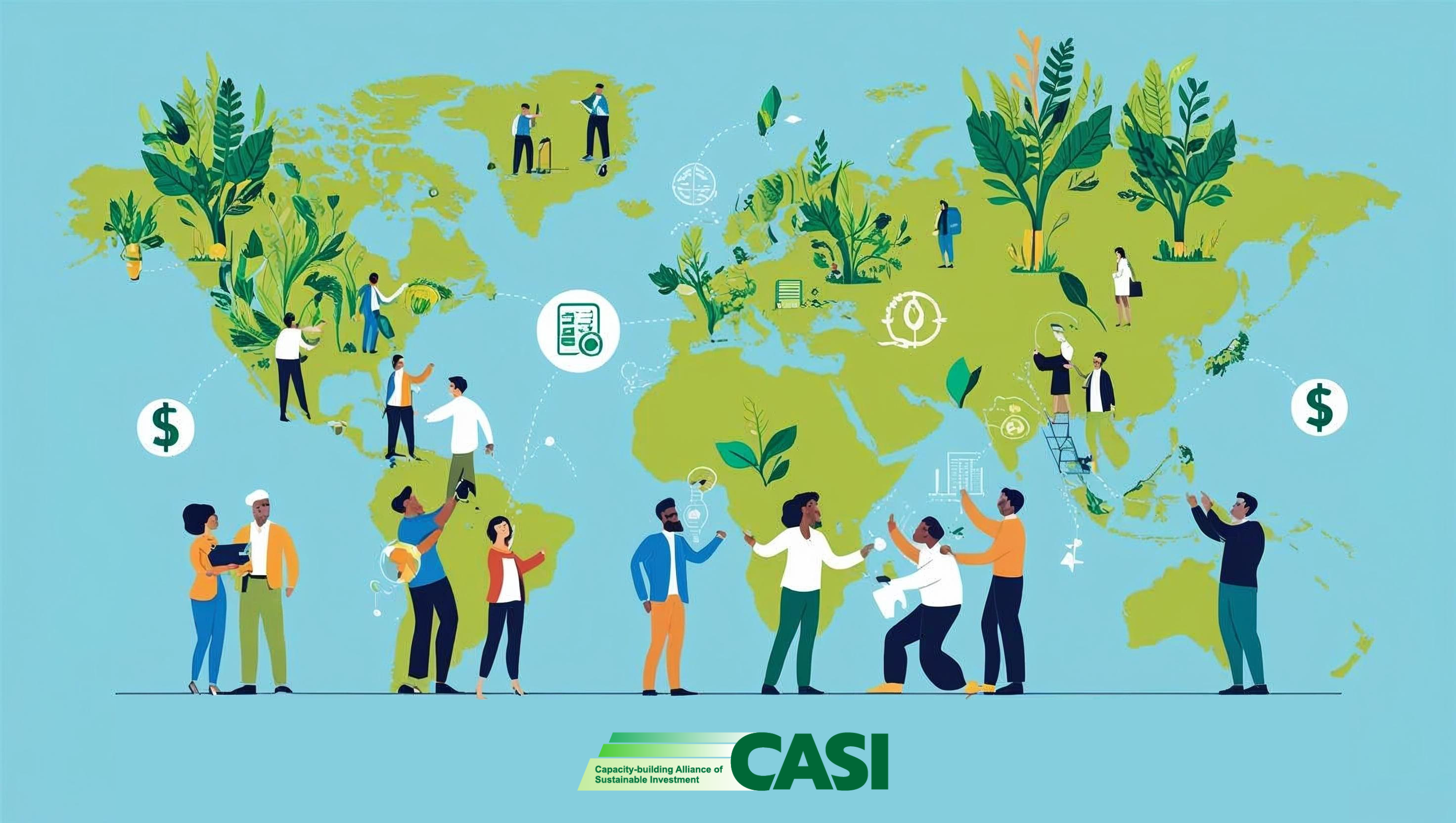
As the world races to meet net-zero targets and bridge the massive green skills gap, the Capacity-building Alliance of Sustainable Investment (CASI) is emerging as a pivotal force in sustainable finance education and technical assistance. With a mission to train 100,000 individuals by 2030-especially in emerging markets and developing economies (EMDEs)-CASI’s approach is defined by cross-fertilisation of knowledge, practical application, and deep collaboration across sectors and geographies.
The urgency for green skills is underscored by the LinkedIn Global Green Skills Report 2024: by 2030, up to 19% of green jobs may go unfilled, and by 2050, this could rise to 50% if action is not taken. CASI’s work-spanning regulators, corporates, financial institutions, and civil society directly addresses these gaps, especially in the Global South.
Blended, Inclusive, and Accessible Learning
CASI Academy, delivered through the CASI platform, is designed to support inclusive and high-impact learning experiences:
1. Blended Learning: Field visits to demonstration projects and partnerships like the HKGFA-CASI programme provide hands-on exposure, complementing online and in-person modules.
2. Intersection of Academic and Professional Training: CASI’s unique value proposition is integrating master’s level depth with professional certification rigour, ensuring both breadth and depth for diverse audiences.
3. Multilingual Accessibility: To break language barriers, courses are offered in multiple languages, with localised content-such as China-focused modules-ensuring relevance for different markets.
4. Enhanced User Experience: Leveraging AI avatars and dynamic scenes, the Academy creates an engaging, interactive learning environment.
5. Cost Efficiency: With pricing below market rates and discounts available, CASI lowers barriers to entry for individuals and organisations across income levels.
6. Localised Content: Modules reflect regional priorities and case studies, such as project finance challenges in ASEAN and China’s steel sector transition.
From Knowledge to Practice: Ensuring Real-World Impact
To ensure that learning translates into impact, the programme is underpinned by a clear theory of change:
1. High-Quality, Practical Content: Advanced Level 3 modules (to be completed by the end of 2026) simulate real-world job scenarios, aligned with professional competency frameworks, preparing learners for immediate workplace application.
2. Certification and Recognition: Graduates will receive certifications that are recognised by CASI’s 67 member institutions, supporting career advancement and new business opportunities.
3. Global Mutual Recognition: By collaborating with global partners, CASI is working towards mutual recognition of qualifications, helping to reduce the sustainable finance talent gap worldwide.
4. Tracking Outcomes: CASI will monitor alumni career trajectories and business impacts, ensuring improvement and relevance of its offerings.
Empowering EMDEs
A strong emphasis is placed on the specific needs and contexts of EMDEs:
1. Needs Assessment and Local Relevance: CASI Academy modules are developed through participatory approaches, reflecting local operational environments, socio-economic realities, and sectoral needs.
2. EMDE-Focused Content: Modules address bankability issues, transition finance, and sector-specific challenges affecting EMDEs.
3. Expert Contributions: CASI actively invites experts with experience from EMDE to co-develop and review content, fostering a positive feedback loop and ecosystem of empowered talent.
Collaboration with 67 Member Institutions: Scaling Impact Globally
CASI, with a diverse network of member institutions - spanning regulators, financial institutions, NGOs, and academic partners, which supports widespread engagement and knowledge sharing:
1. Distribution and Local Partnerships: Through future initiatives like the HKGFA-CASI programme and partnerships in Africa, Southeast and Central Asia, CASI expands its reach and adapts to local contexts.
2. Content Development and Review: Expert institutions such as Civic Exchange, International Transition Plan Network, ACCA, ICVCM, GORD, financial service providers, and corporates contribute to and review modules on transition finance, disclosure, carbon markets, and more.
3. Grants and Subsidies: Funding from the Hong Kong Environment and Conservation Fund supports the development of specialised courses (Environmental Risk Management and Environmental Impact Assessment courses) by the Hong Kong Institute of Qualified Environmental Professionals, which will be launched in the CASI Academy in 2026.
4. Professional Development Recognition: CASI Academy courses will be recognised for continuing professional development, further incentivising participation.
For professionals from all backgrounds - finance, law, engineering, policy, civil society, and beyond - sustainability is now a core competency. Financial institutions require sectoral expertise; central banks and regulators are hiring beyond traditional finance; and major asset managers are seeking talent from civil society and scientific organisations. CASI’s ecosystem is designed to equip this diverse workforce with the knowledge, skills, and networks needed to lead the sustainable transition.
Start your free training now at CASI Academy: https://academy.casi.net/login

